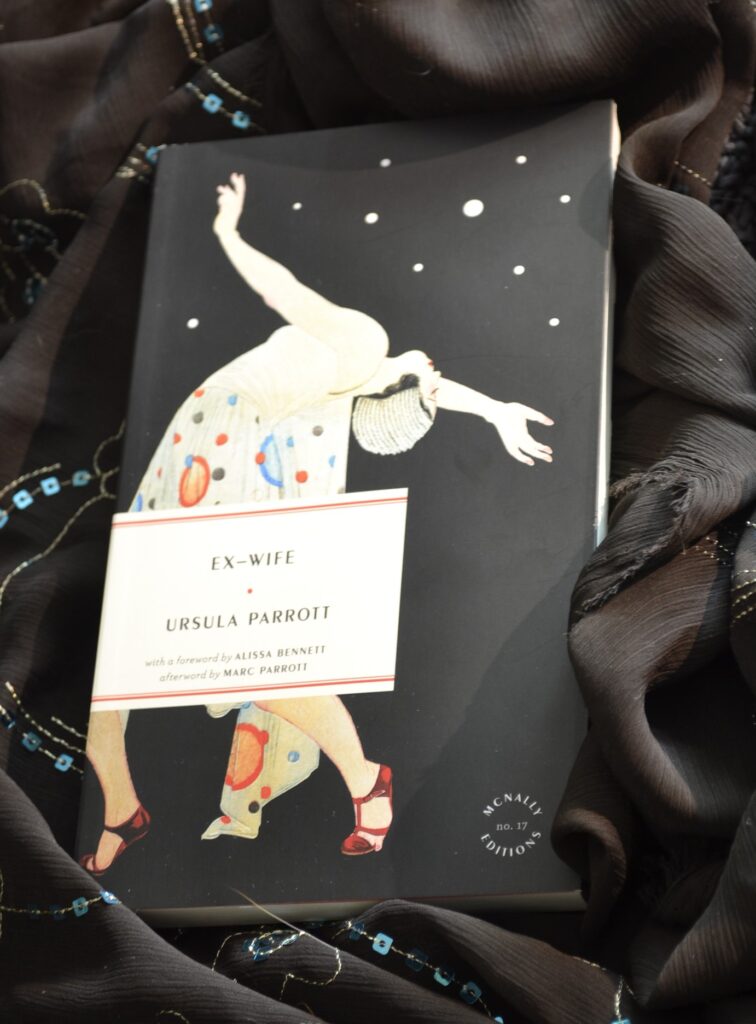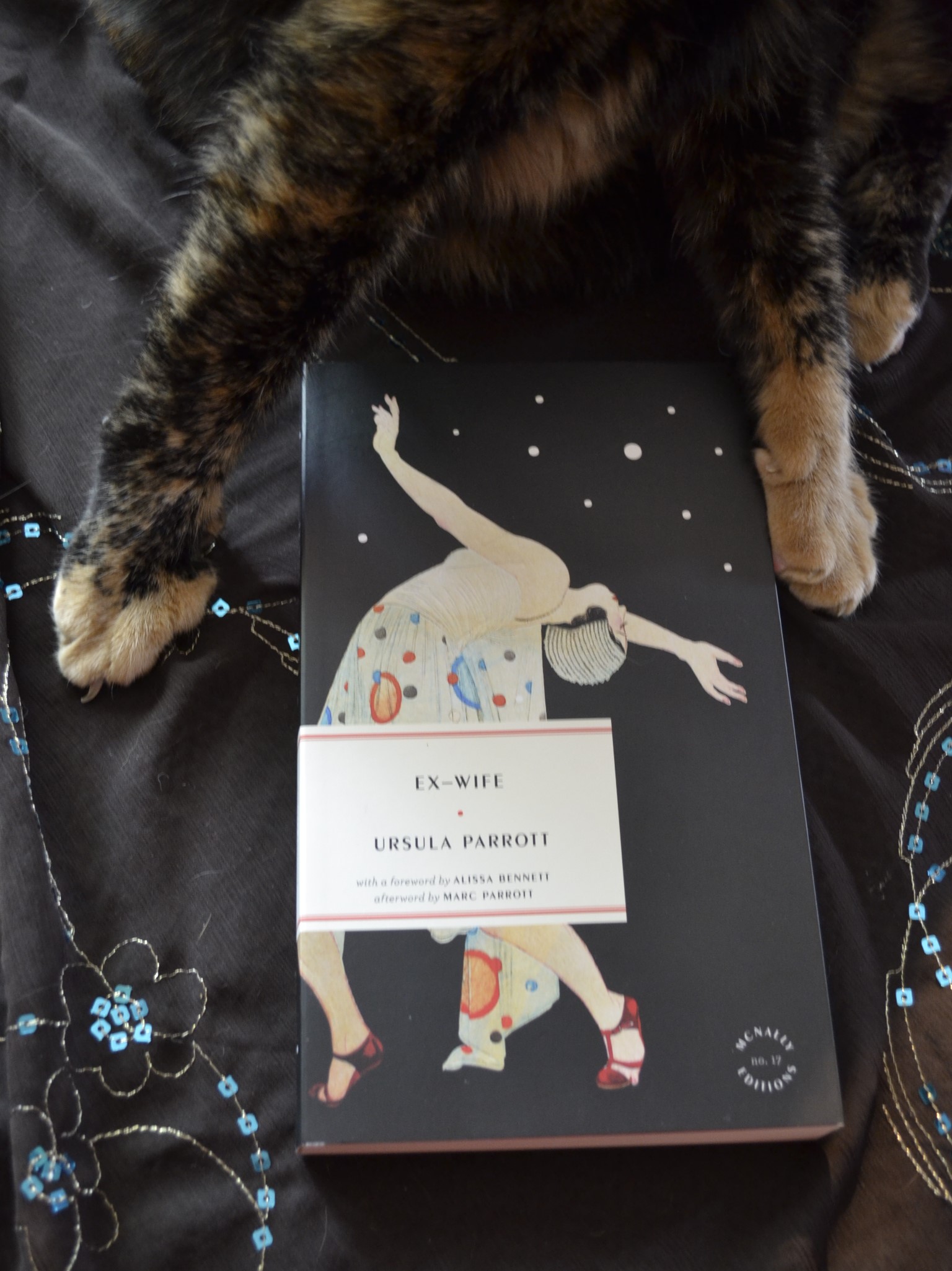Busy Weekends
As I have said many times, we have a freelance business. As such, I am used to using the weekends as our quiet inside time, when clients don’t email and I don’t have to leave the house. But I have noticed that recently we’ve actually been going out on weekends — either to plays, to community events, or to catch up on errands that we didn’t manage to finish. Most of this is a good thing because it’s a result of us being more connected with the arts community and our community in general after five years of trying adjust to life outside of the big city. We’ve made some friends and have started to actually feel like we might put down some permanent roots here.
But some of it? We’re too busy. Again. There’s something about weekend errands that mean something is out of alignment in our lives. Perhaps right now the garden is a contributing factor because the new growth is out of control and we will be wading through yard work for the foreseeable future.
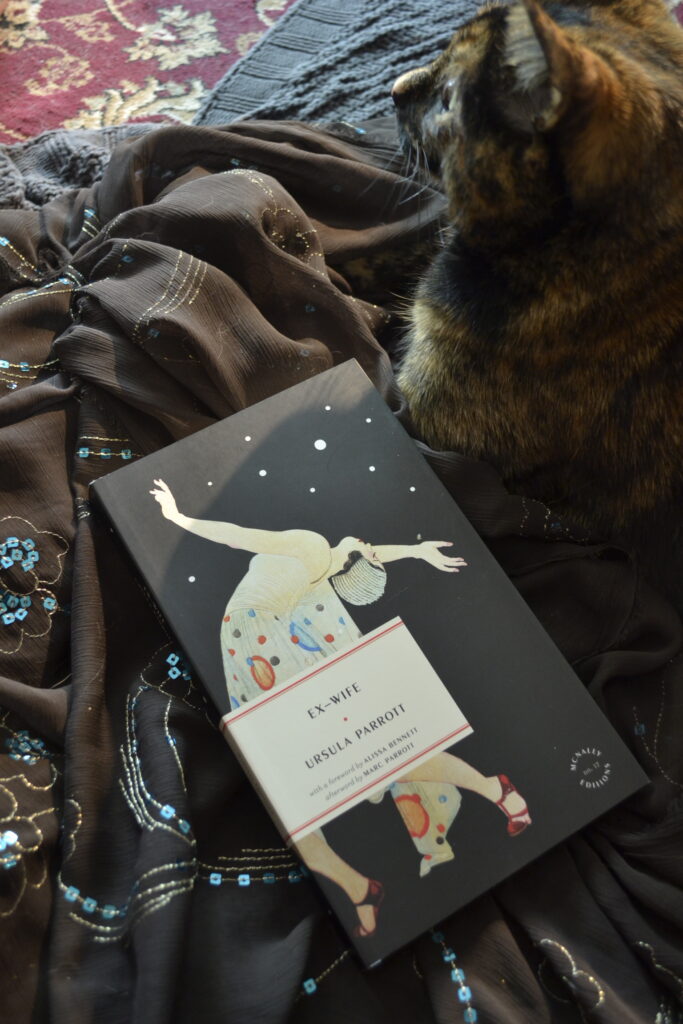
A Turning Point
When Ursula Parrott’s Ex-Wife was anonymously published in 1929, it represented an important moment in literature. In the roaring twenties, divorce was finally starting to get normalized in society — at least for men. The female divorcée was often a source of flippant ridicule as well as a stereotype of being either a sad, tragic figure or else a woman on an irrevocable path to destruction.
In Ex-Wife, Parrott is attempting to shatter these tropes. Patricia is not broken by her divorce; instead, she uses it as an opportunity to live life on her terms and to determine what it is she wants out of herself and out of a partner. She is a complex character that has a lot to say and also displays a range of emotions that are sometimes contradictory in a very human way. As she navigates life on her own, she evolves in a very visible way before reaching the book’s conclusion.
Parrott does not shy away from writing about the roaring twenties as it actually was — a turbulent time where Victorian sensibilities were on the wane. But with new freedom came new sources of peril and new questions about what role women were to have in a society that held new possibilities and a disdain for anything old.
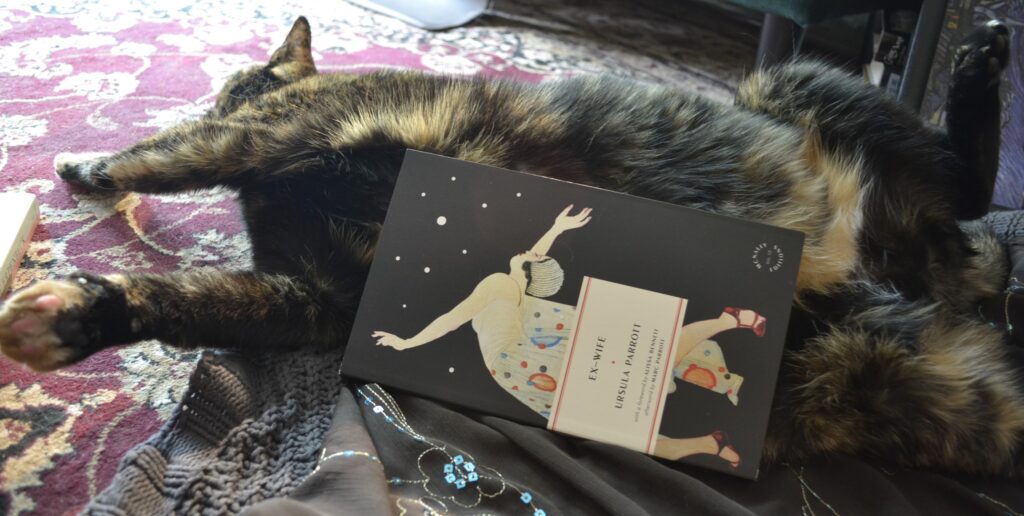
A Subtle Critique
Not all of Patricia’s experiences are positive and, though society is changing, in many ways there is a disturbing sameness. Men ultimately have all of the power, and they also have a lot more freedom to do what they want, when they want to, and how they want to. Though Patricia is trying to maintain her identity, relationships still define her and the men in her life still ultimately shape her existence. In a lot of ways, Ex-Wife is not an easy read, because Patricia’s freedom is a freedom in name only. And though there is more possibility open to her, she still feels pressured to make choices that she knows are not ethical and not good for her. Ultimately, she decides that in order to exist in the world she wants to move in, she has to marry again — even though she doesn’t truly want to.
Parrott meant for this to be disappointing. She meant for you to get to the ending and be frustrated that Patricia squanders her chance to live a life that does not depend on men. Parrott also meant for the reader to see the lasting effects of oppression and what happens when the oppression ends but the tendrils of it linger.
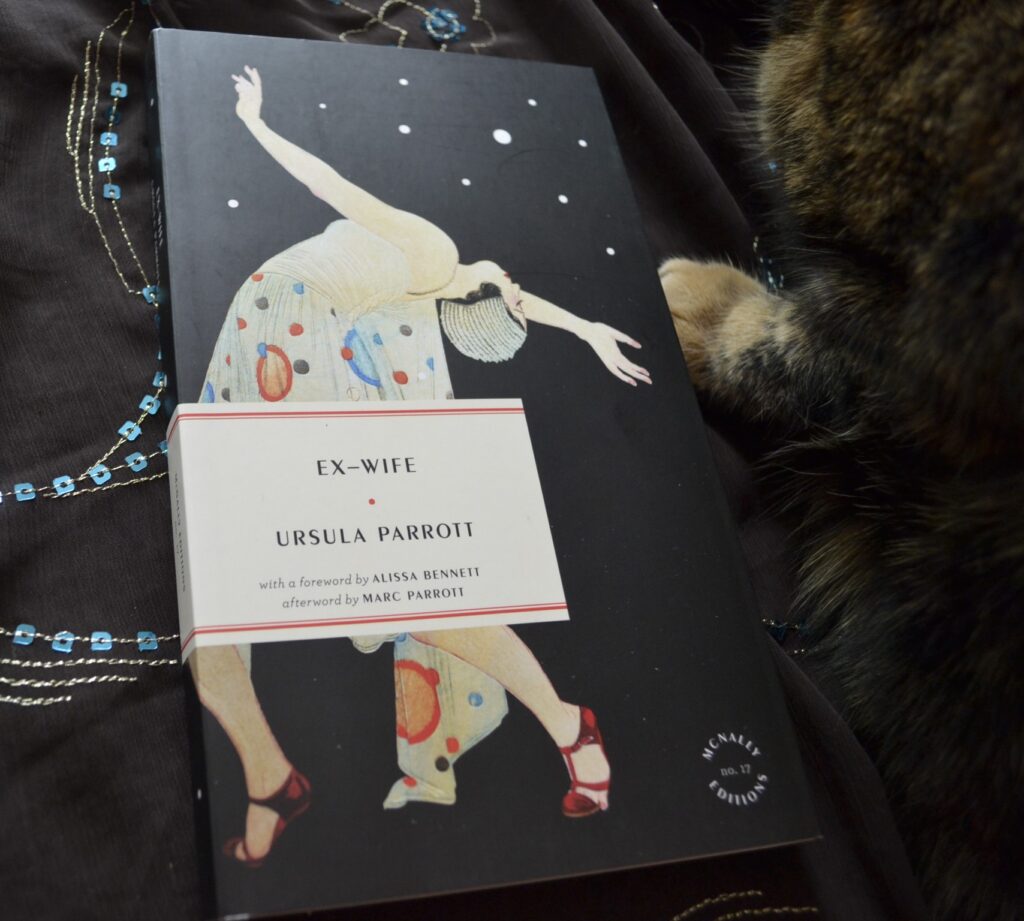
Still A Long Way to Go
While Parrott was really making a very bold, very different, and very necessary statement for the time in which she was writing, there are several aspects of the novel that are very grating. Though Parrott is attempting to break stereotypes of divorcée in literature, she relies on some new and more general stereotypes for a supporting cast. There is the roommate who is the ‘mercenary’ woman. Also, there is a lot of space devoted to clothes — and shoes. To some extent this is appropriate, since Patricia works in fashion, but there is far too much of it. Also, Parrott is very critical of women that do not exist in the same spheres as her protagonist or those that have chosen more traditional lifestyles. There are times when it feels like she is still making the choice to attack other women instead of systemic oppression.
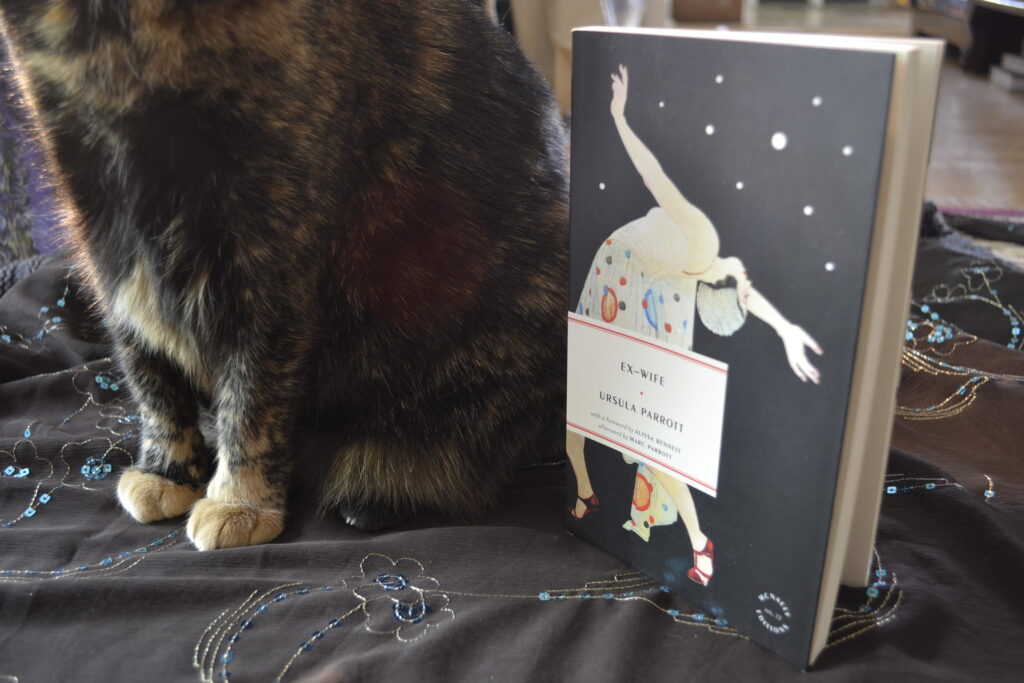
The treatment of sexual assault is very casual as well — though it is a mark of bravery that Parrott discussed this at all, considering when the book was published. Parrott does depict it with brutality, but she also has Patricia recover without much comment. Part of the point was that these assaults constantly happened, went unreported, and the victims went untreated and were treated as if this is was a part of life they should have just accepted as single and/or divorced women. It was and still is a horrific reality. But Parrott’s treatment, though revolutionary, still is too brief and too flat.
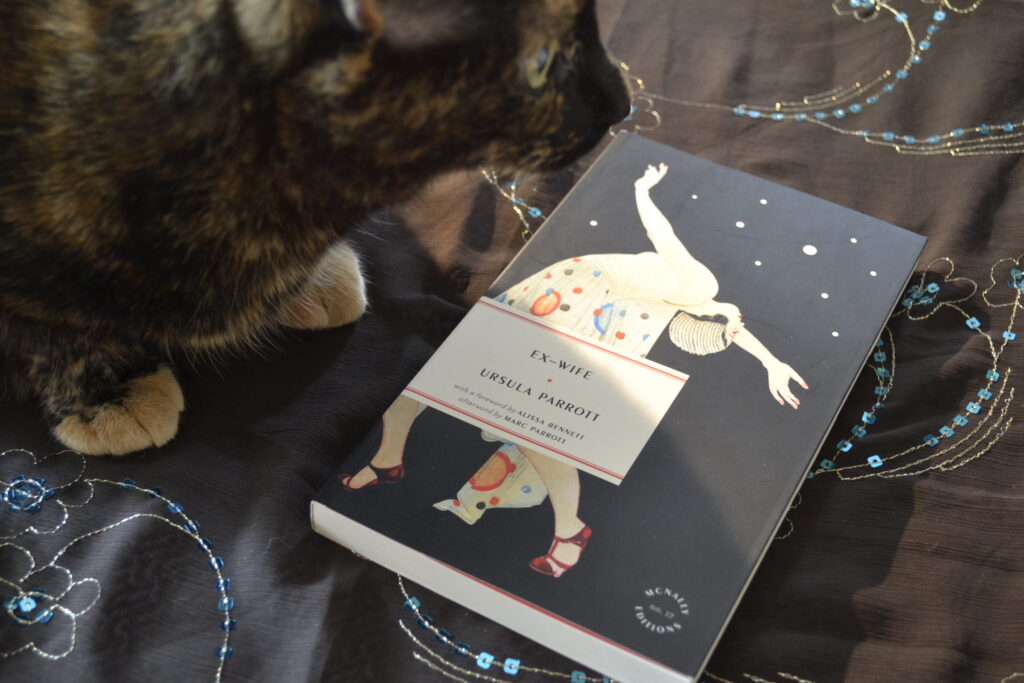
Restful Weeks
I’m hoping that our looming deadline next week will actually mean some time to sit and read instead of driving all over hill and dale to get the groceries I happen to forget about. That’s the good thing about working with books, you do get some quiet time to sit and work with words. Which usually translates into some time to breathe, and time to actually get through some of my reading stacks.
I’m also hoping that we only deal with either busy weeks or busy weekends instead of both at once. Both at once gets really unmanageable really quickly.
